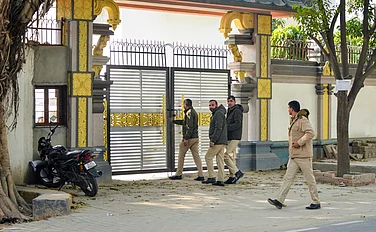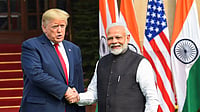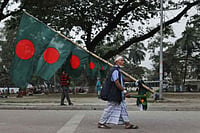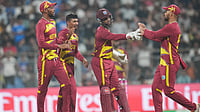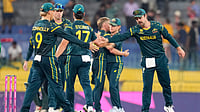A court at Halol town in Gujarat's Panchmahal district on Tuesday acquitted 22 persons, accused of killing 17 members of a minority community, including two children, for want of evidence in a case stemming from the 2002 post-Godhra communal riots in the state.
The court of Additional Sessions Judge Harsh Trivedi acquitted all the 22 accused, eight of whom died during the pendency of the case, defence lawyer Gopalsinh Solanki said.
"The court acquitted all the accused in the case of rioting and murder of 17 members of a minority community, including two children, in Delol village of the district for want of evidence, Solanki said.
According to the prosecution, the victims were killed on February 28, 2002, and their bodies burnt with an intention to destroy evidence.
Communal riots had broken out in different parts of the state a day after a bogie of the Sabarmati Express was torched by a mob near Godhra town in Panchmahal district on February 27, 2002, killing 59 passengers, most of them 'karsevaks' returning from Ayodhya.
An FIR (first information report) was lodged under Indian Penal Code (IPC) sections pertaining to murder and rioting after the violence in Delol village. Another police inspector lodged a case afresh nearly two years after the incident and arrested 22 persons for their alleged involvement in the riots.
The prosecution was unable to gather enough evidence against the accused persons, and even witnesses turned hostile, Solanki said.
The defence lawyer said the bodies of the victims were never found.
Police recovered bones from an isolated place on the banks of a river, but they were charred to such an extent that the identity of the victims could not be established, he said.
"Because of lack of evidence, the court acquitted all the 22 accused, eight of whom died during the trial," he said.













